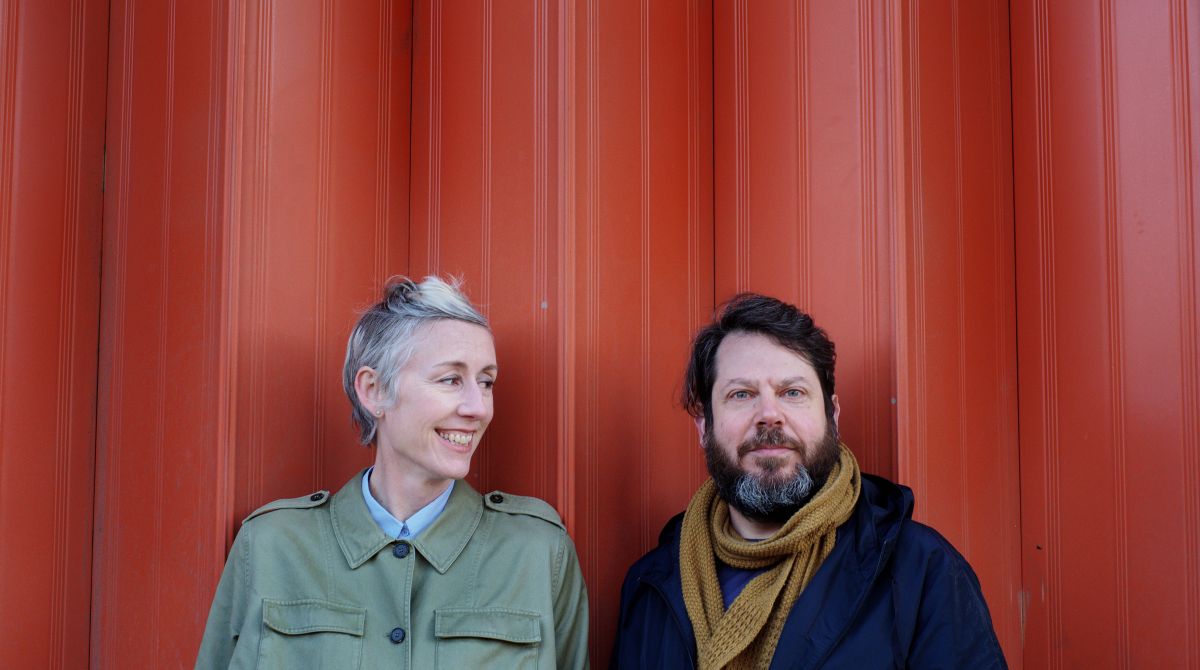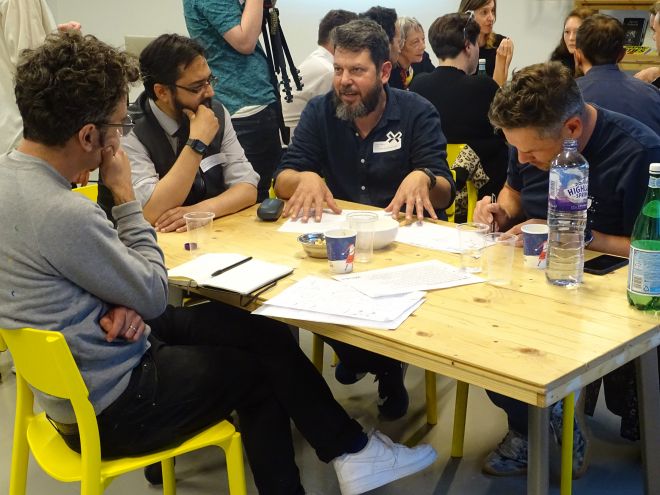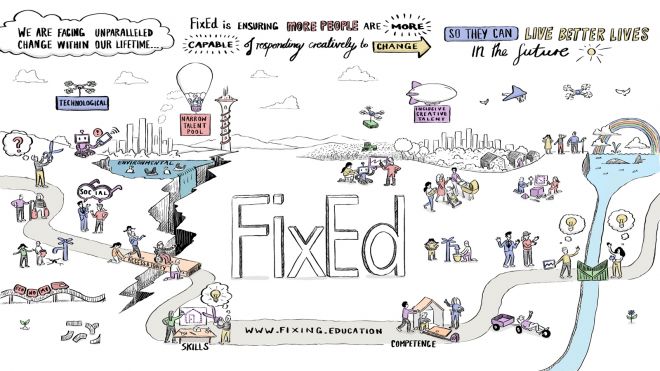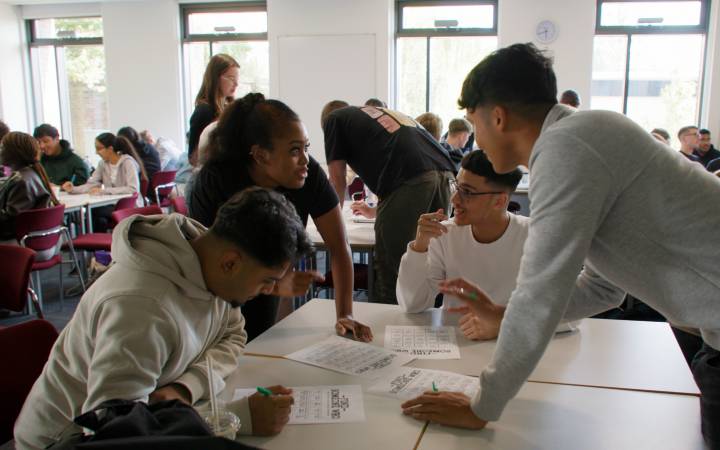Pioneering educational initiative co-founded by Kingston School of Art design expert Daniel Charny receives prestigious Sir Misha Black Award
Posted Tuesday 2 February 2021
 Dee Halligan and Kingston University's Daniel Charny, FixEd co-founders. Image by Kevin Davies.
Dee Halligan and Kingston University's Daniel Charny, FixEd co-founders. Image by Kevin Davies.
A learning organisation that seeks to equip young people with problem-solving skills through a series of award-winning educational programmes has been awarded the prestigious Sir Misha Black Award for Innovation in Design Education.
The accolade was awarded to FixEd, a think-and-do tank co-founded by Professor Daniel Charny, Professor of Design at Kingston School of Art, and creative strategist Dee Halligan, for their innovative and exceptional work in design education.
FixEd delivers innovative educational programmes that introduce students in schools and universities to human-centred design and creative problem-solving to help develop the next generation of designers, engineers and scientists. Its flagship learning programme Fixperts, established by Professor Charny, challenges students to use their imagination and skills to come up with design solutions for everyday problems.
The organisation also provides teacher training and gets involved in research projects with relevant partners with an interest in design.  Professor Daniel Charny facilitating a workshop with teachers and practitioners at the FixEd Think-Ahead-Tank: The future of designing and making in schools. September 2019. Image credit FixEd.
Professor Daniel Charny facilitating a workshop with teachers and practitioners at the FixEd Think-Ahead-Tank: The future of designing and making in schools. September 2019. Image credit FixEd.
Receiving an award in the name of Sir Misha Black - who was central to the development of design in 20th century Britain – was a real honour for the FixEd team, Professor Charny said.
"Along with my co-director of FixEd, Dee Halligan, I feel proud and humbled to receive this recognition," he said. "It is a very special award connected to Sir Misha Black's legacy. We admire his lifelong commitment to internationalist and interdisciplinary approaches. His belief in the importance of design not only to industrial and commercial activity but to everyday society and culture were visionary for that time. They continue to be powerful, necessary and relevant values today."
The Sir Misha Black Awards honour exceptional individuals and institutions within design education with the aim of highlighting the crucial importance of their work in the industrial, commercial and cultural life of the country.
The award judges described FixEd as an initiative that "positions design as a critical tool irrespective of discipline or level of practice. It works throughout education, from schools to colleges and into professional practice. It fosters design's relationships with adjacent disciplines, from engineering to technology and art, and is a progressive approach to how design can anchor approaches to change in the world".
"FixEd and its learning programmes highlight the social aspects of design and the need for a design education to be seen as valuable as a discipline itself and also for the life skills it gives students, such as problem solving, teamwork and creativity," Professor Charny said. "It is about designing with a purpose, and that purpose being predominantly social - design in response to real needs."
FixEd's programmes involve more than 5,000 design, engineering and technology students in 42 universities across 25 countries, of which Kingston University is a major hub. Many Fixperts projects developed at Kingston School of Art, which were carried out with and for local community partners, have been showcased around the world.  Image credit FixEd. Illustration by Victor Hagger at Information Illustration.
Image credit FixEd. Illustration by Victor Hagger at Information Illustration.
With the current global uncertainty in relation to the Covid-19 pandemic, the need for responding to change and for innovative problem-solving is even greater, according to Professor Charny. "We are looking at formats to deliver more remote teaching of human-centred design. It is challenging, especially if students cannot easily meet people in the community or access campus workshops, but we are looking at ways to deliver our learning programmes successfully through virtual means," he said.
"We are aiming to help more young people connect to our programmes and to help teachers to engage students in social design. The need to develop these skills in our school and university students is more important than ever.
Contact us
General enquiries:
Journalists only:
- Communications team
Tel: +44 (0)20 8417 3034
Email us



